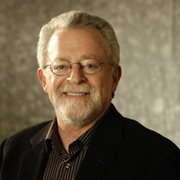The doctor came to the waiting area following the lumpectomy in my wife’s right breast to tell me what they had found. I was just sure that he was going to tell me, “We removed the entire tumor and there’s nothing more to worry about, so just go and have a nice life.”
He didn’t.
He said that they couldn’t get the entire tumor and that we would have to come to his office in a few days for the pathology report as to whether the cancer had spread. During that return appointment my wife asked him, “Is this serious enough to kill me?”
He was obviously very uncomfortable, but said that women in her situation have a 60% chance of living five more years. She was incredulous, “Only 60%??” At that point she passed out.
We will never know whether it was her low blood sugar or the doctor’s news that caused it, but we do know what happened next. Her sister and I rushed to help her come out of it and the doctor told us to let him know when she was back and then left the room! We weren’t too crazy about him after that.
We wanted a second opinion, so we went to a major, nationally-recognized cancer center that was over 100 miles from our home to get it. The second option supported the original diagnosis, but even more important was that we just loved the doctor there. We were very conflicted about the situation; should we jump ship and change to the new doctor for the remaining treatment?
We went to a childhood friend of mine who is a renowned surgeon in our area. He gave us some sage advice: “You have to feel good about your doctors. It will make all of the difference in the world.”
We followed that advice and now, looking back, I can’t even imagine all of the additional stress we would have endured had we stayed with the first doctor. Each visit would have been preceded with dread and a feeling of hopelessness; in other words, stressful.
The distance to the other doctor was not a small consideration, as it added significant expense and time to the treatment regimen. I didn’t want to sacrifice long-term results for short-term convenience, so we decided that distance shouldn’t be an issue. I think that the biggest obstacle was fear. We weren’t crazy about the doctor we had, but at least we knew him and we knew our way around the medical facilities. And, we were intimidated by the idea of telling him that we wanted to put our faith in someone else. Dumb, huh?
Needless to say, we went with the other doctor and it was a pleasure every time we went to see her; we had a wonderful rapport and it made the entire process so much more bearable.
My advice: Get the best doctor you can to treat a major illness or condition, and make sure that he/she is someone that you feel good about. This might involve some extra driving or expense, but remember not to sacrifice long-term results for short-term convenience. If you can possibly find a way to do it you will save yourself untold stress.
This article is one in a series on coping strategies for patients and caregivers alike. For more thoughts on caregiving, coping strategies, reducing stress, and just plain fun subscribe to my free monthly newsletter at http://www.CaringAndCoping.com Need a speaker for an upcoming event? I have a program that will knock your socks off! Watch video clips at http://www.ThePPP.org/speaking/#handle





Add a Comment1 Comments
I agree with you. A good rapport with the doctor works psychologically well. It treats half of the disorder to success. It is nice that you found a nice doctor however at the end.
November 18, 2009 - 4:40am(Note: Endorsement of specific treatment facility removed by EmpowHer moderator)
This Comment